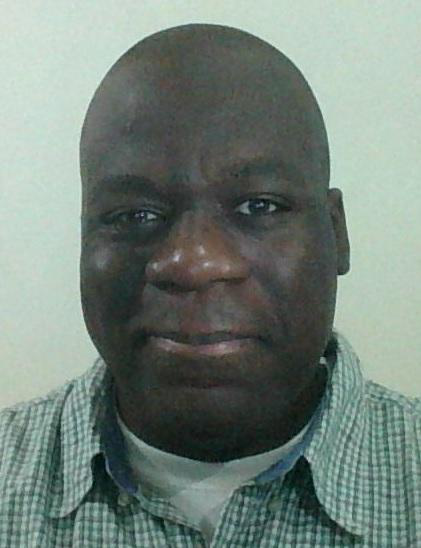The typical cost of a new home in November 2020 was $330,000. And when you buy a home, you are making a decades-long commitment to pay various bills for that home. There is a lot of preparatory work you must undertake before you buy a home. If you are not careful, the signs you bought the wrong house may only become apparent after you buy it.
Preliminary Signs You Bought the Wrong House
No two homeowner budgets are alike. So, when the signs you bought the wrong house present themselves, pay attention.
Also, the signs that you bought the wrong house will be specific to your own circumstances. There are no uniform “wrong house,” signals that fit every homeowner.
Additionally, many homeowners may refuse to acknowledge that they bought the wrong house to keep from admitting they did something wrong.
However, when you are in a financial hole, the first thing to do is to stop digging.
Here are four signs you bought the wrong house.
You Can’t Maintain Your Budget
One of the biggest signs that you bought the wrong house will be a noticeable drain on your finances and an inability to control your budget.
Finalizing the sale of a new home is just the beginning of a series of new regular payments that you will have to undertake.
For example, the average monthly mortgage payment for the typical homeowner is $1,300 to $1,750. However, the median monthly mortgage payment is $1,500.
Still, these are just basic averages relative to mortgage payments. Depending on your financial circumstances and contract terms, you could pay as much as $3,000 or more on monthly mortgage payments.
In fact, most homeowners spend as much as $17,000 annually on home-related expenses. Such expenses can include:
- Mortgage interest
- Repairs
- Property taxes
- Utilities
- Homeowners insurance
- Electricity bills
- Water bills
You should make a preliminary homeowner budget list before moving in and then revise after moving in. Also, keep in mind that you should revise your household budget regularly according to your evolving finances.
Location, Location, Location
One of the biggest signs that you bought the wrong house is realizing your home is in an undesirable location after the sale.
You may know that the neighbors have dogs that bark and howl every night.
Or your new home may be located near train tracks or a railroad station that is only audibly noticeable during certain times of the day. You may not have noticed the sounds when you first toured the home before buying.
Your new home may be located near an empty intersection that becomes unbearably noisy during rush hours.
Some homeowners don’t realize that their new home may lie under the path of airline traffic until it is too late.
Have you checked the logistics for your local travel times? Perhaps you live in an area where your work commute is lengthened unbearably but was unaware before buying the home.
I think you may get the point.
Get a map of your potential new neighborhood or check it out on Google. You should have a realistic understanding of your commute logistics, potential noise pollution emanations, and the spatial layout of your potential neighborhood.
Once you have decided on the home you want to buy, you may want to visit that neighborhood at varying times to see what awaits you.
Bad Neighbors
The United States and Uruguay may be statistically tied for having the most lawyers in the world. And there is a reason for that.
Litigation is never about winning – it is about exerting control, creating stress, wasting the other’s person’s money, and being petty.
For example, the United States is notorious for neighbors suing neighbors over petty concerns and nuisances.
Neighbors sue each other over noise, boundary lines between houses, driveway access, tree houses, and many other things.
Some neighbors get a kick out of exerting control over new neighbors just because they have lived there longer. A bad neighbor’s way of saying, “hi,” maybe to send police to your home every time you have a BBQ or party to complain about the noise.
At most open houses and tours for home properties, you should have a chance to meet the neighbors. Take every opportunity to get to know your potential neighbors at such events.
After all, you will be living with each other for decades and in life, we mostly make the worst enemies unwittingly and wholly by accident.
HOA
A homeowners association is basically a kind of neighborhood and community organization and arbitrary court.
There are many neighborhoods that won’t let you in unless you join the local HOA. An HOA is like a council that is headed by your neighbors. They will arbitrarily resolve neighbor disputes so that they don’t end up in court.
Depending on the exclusivity of the neighborhood, you may have to spend scores, hundreds, or thousands of dollars annually on HOA fees. HOA fees are collected monthly for neighborhood maintenances, repairs, and community projects.
However, HOA can restrict the freedoms of homeowners who join them. HOAs like to increase property value and perpetuate a uniform neighborhood aesthetic for houses.
Depending on your HOA contract, you may be restricted from hanging up holiday displays, lighting, or ornaments on the outside of your home. Your local HOA may decide such displays are gaudy or violate the terms of your contract.
In many cases, your HOA may even try to sue you for personal aesthetic choices you make on your home that may go against the HOA.
Some clear warning signs you bought the wrong house may become evident when the local HOA tries to control how you decorate your house.
Signs You Bought the Wrong House
Do as much research as possible before buying a house.
The only thing more expensive than buying a home is realizing you bought the wrong one and then having to move.
Read More
IN A DEBT QUAGMIRE? DON’T DO THIS
WHAT ARE THE JOBS THAT MAKE $1000 A WEEK
HOW TO GET PAID FOR ADVERTISEMENT ON YOUR CAR
5 MONEY LEAKS TO PLUG FOR MORE SAVINGS
3 HABITS TO DEVELOP TO LIVE A THRIFTY LIFE

Allen Francis was an academic advisor, librarian, and college adjunct for many years with no money, no financial literacy, and no responsibility when he had money. To him, the phrase “personal finance,” contains the power that anyone has to grow their own wealth. Allen is an advocate of best personal financial practices including focusing on your needs instead of your wants, asking for help when you need it, saving and investing in your own small business.
